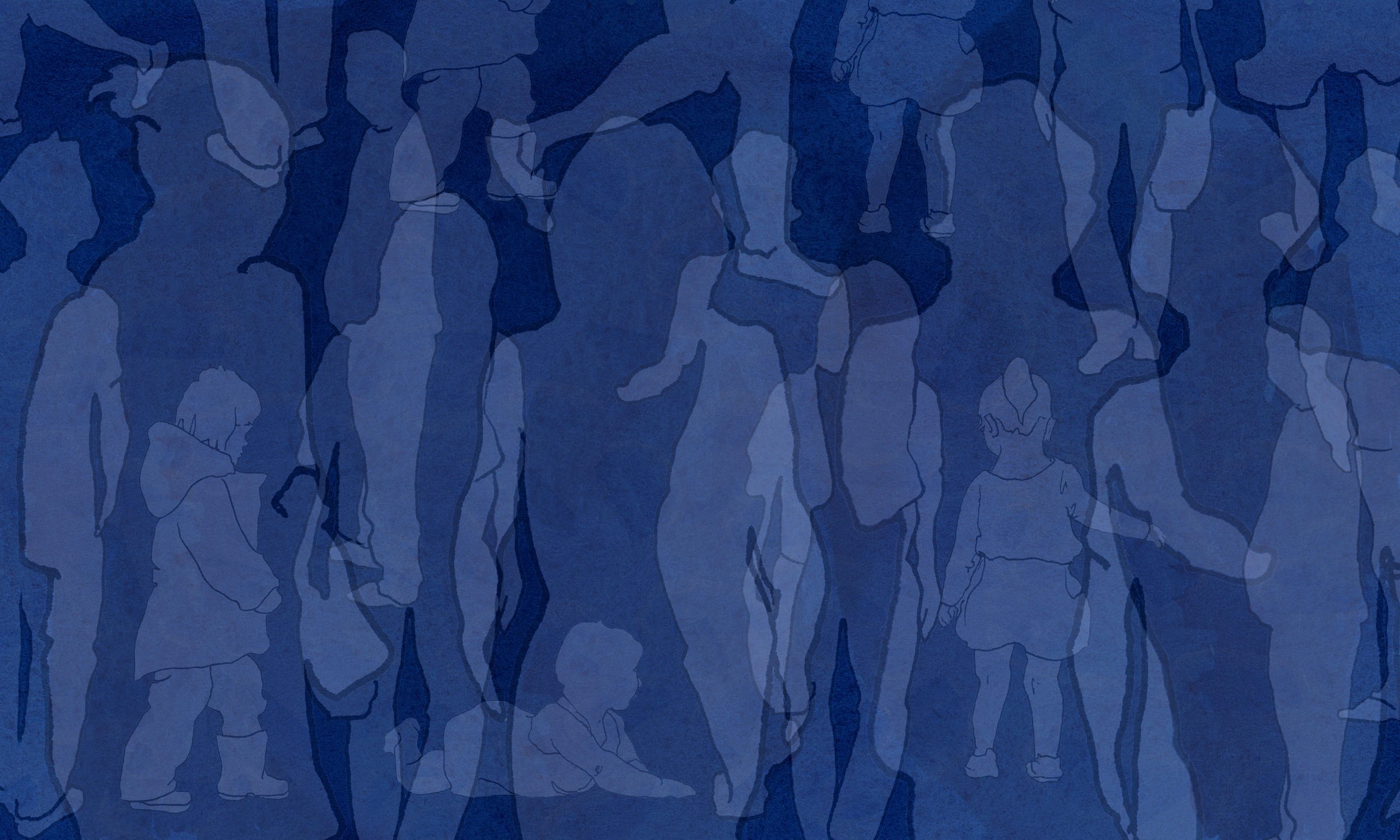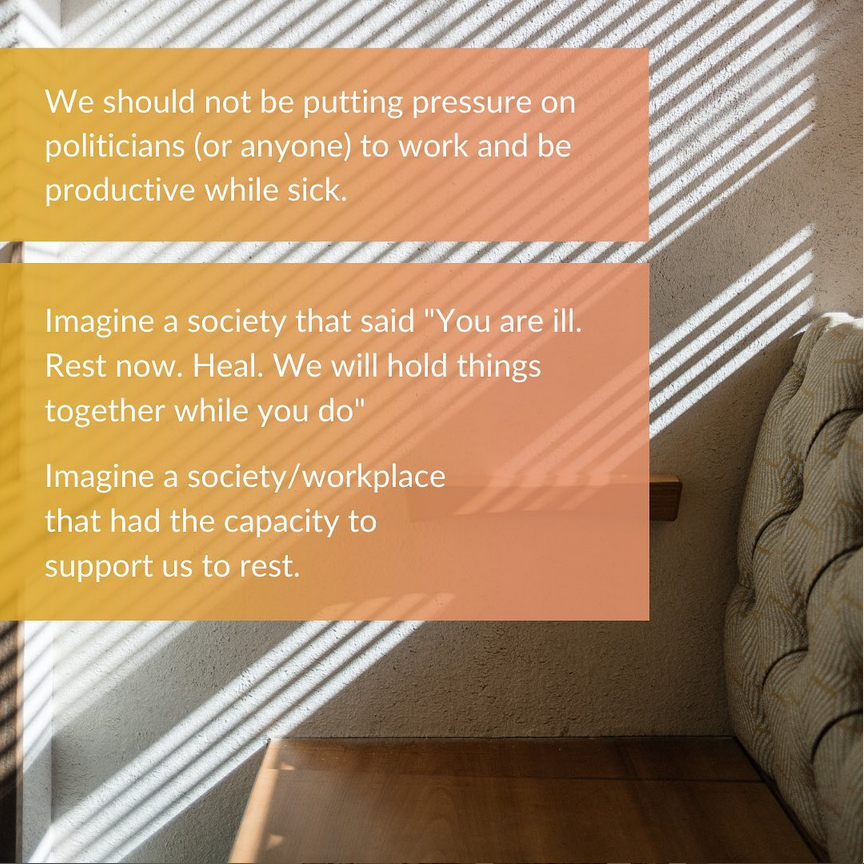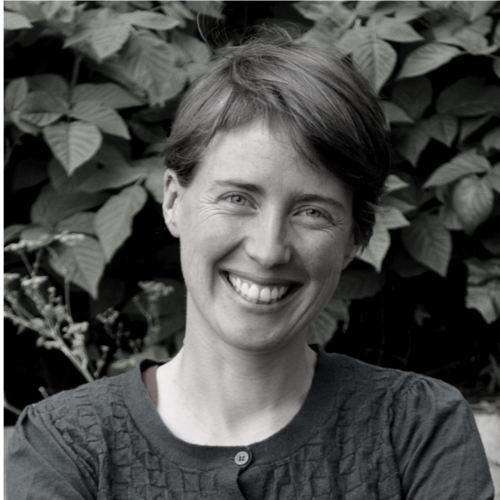Underlying issues: why language matters at election time
Photo collage of images from Unsplash
This article was first published over at Power to Persuade on the 3rd of May 2022.
Words are powerful, particularly at election time. Three word slogans shape debate and lies become understood as truths if they are repeated often enough. To create an agenda for the public good we need to recognise the power of words and use them to our advantage.
While covid has caused extraordinary disruption, it has also been a cause for revelation as it forces us as a society to reflect on what we value and what we want. It’s a perfect example for considering the power of words and story as we head towards the polls.
Like everywhere in the world, Australians have experienced covid in a few different phases. The initial “we’re all in this together” phase: people looked out for each other in nice neighbourly ways, and the government ensured that people were paid to stay home. For some of us, this phase of the pandemic actually meant an uptick in mental health and wellbeing – as for the first time in years many could afford basics like food, medication and a modicum of financial stability.
There were also intense lockdowns in some places, which carried with them both a sense of camaraderie, and a deep sense of isolation and distress.
We learnt some important things along the way, like the value of free public healthcare (yay vaccines and free PCR tests), and the problems of privatisation (hello hotel quarantine).
We had a moment when we thought we had this whole pandemic thing sorted and that just maybe 2022 was going to be an easier year.
And then Omicron hit, and the government decided that rather than caring for people it was time the economy received a little TLC and that really we should do everything to make sure ‘the economy’ is comfortable. I mean what’s a Prime Minister to do when faced with those adorably big pleading corporate eyes?
We've gone from a sense of at least attempting to be all in this together, to a sense that many people are disposable cannon fodder in the name of keeping the economy alive.
If you’re a teacher or a healthcare worker you would have started the pandemic already overworked and underpaid. If you’re a casual worker your income has probably become more tenuous and erratic. And if you’ve got any kind of chronic illness or disability then you’re probably feeling like a second-rate citizen – utterly unprotected and invisible.
What would it truly mean for us to be “all in this together”? What would it take for us all to feel like no matter how hard the pandemic gets, we are doing everything we can to make sure people are cared for, with leaders who are accountable to that promise?
I’ve spent the past couple of years listening to Australians from all different walks of life talk about what they want for their communities as a part of my work with Australia reMADE. Beyond the basics of things like housing, meaningful work, good healthcare and access to nature, people talked about a desire for trusted leadership.
As one woman from a farming community in Western Australia said, “[I want to know] that we are heading in the right direction, that we’re listening to science, that we’re on the right track.”
There is nothing like a looming election to prompt us to stop and think about what it is we really want from our politicians. Many of us are asking - what would it look like for us to feel as if we lived in a society that prioritised people and the public good ahead of the economy and private profit?
We know we need visionary and courageous policy, but not all of us are in positions to influence policy directly. Fortunately all of us, regardless of who we are and what we do for money, are able to use language to create space for the type of policy that we want to flourish. At election time, this becomes particularly pressing and important.
So here are three suggestions I have for changing the language that we use publicly, in order to create fertile ground for the types of policies we want:
First, we'd shift the langauge around how we report on Covid deaths.
Photo by Josue Escoto on Unsplash
There has been a lot of anger in the disability community recently around the way that Covid deaths are reported. It’s really common for politicians to offer their condolences and add, “but they had significant underlying health issues” (the ‘but’ may or may not be spoken out loud). And it breaks my heart to hear that. That’s my brother with diabetes, that’s my friend with asthma, that’s my husband with chronic fatigue syndrome. That’s unknown humans with organ transplants currently living wonderful, useful, beautiful, ordinary lives. In fact, according to the Department of Health, 50 per cent of Australians have underlying health conditions.
How differently it would sound if what was said instead was, “We know it is those with underlying health conditions who are more likely to die. This is why we have to work as a community to keep EVERYONE safe." Rather than making some people feel disposable or less worthy of life? (I suggest reading Mia Mingus’ great article on this.)
Second, we'd be sure to articulate the driving values behind our policy decisions.
Photo by Erika Giraud on Unsplash
Let’s use schools as an example. Now, I don’t pretend to have had any of the answers around how and when schools should have gone back at the beginning of the year. But I do think that the way we talked about it and the values that drove the conversation were instructive. Jane Caro notes that the speed with which many politicians wanted to return children to school has so often been couched in the language of ensuring that parents can get back to work. She writes, “For those with this view, teachers are primarily babysitters who pass the time doing a bit of education on the side. In other words, schools are useful insofar as they release parents to be part of the economy”.
What if we talked instead about the purpose of schools as places of education, as temples of learning, where teachers were valued for their wisdom and skill? Where kids make friends, engage in new ideas and weave themselves into the collective? What if we said “these are such valuable community centres that we must ensure all those who attend are safe, supported and cared for in the new context of covid”? If we talked about keeping teachers safe we’d be implying they were inherently valuable as individuals and for the services they provide our collective, if we made sure their classrooms were properly ventilated and comfortable in all sorts of weather, we would be implying the importance and significance of those who maintain these public institutions.
The solutions are surely complex in a time of Covid, but they certainly cannot be found until we use language that shows care and respect for places like schools, hospitals, aged care centres and childcare; and the people and communities who exist there.
Third, we'd talk about what it really means to care for each other, as individuals and as a community.
Photo by Max Bender on Unsplash
I’m worried that while we’ve been focussed on the death rate of Covid (with good reason), that we’re forgetting the need for caution and the role of care when it comes to the long-term impacts of this virus. Early research suggests that it could be as many as 40% of people who catch covid go on to develop Long Covid (regardless of the severity of their initial symptoms). Symptoms of Long Covid include ongoing brain fog, severe fatigue, organ damage, dizziness and more. My husband’s chronic illness is quite similar to Long Covid and every fibre in my body shrieks at the thought that more friends and family will end up in our situation.
I find myself urging people to do whatever they can to avoid getting Covid, all the while knowing that for some at least this might not be possible. Research (again, it’s early days) suggests that the best way to reduce Long Covid risk is to make sure that you get adequate rest in the two weeks after diagnosis.
But what does adequate rest look like and how do we actually do it in a world that tells us to just push through? How can we justify, prioritise and afford to rest when our leadership is actively encouraging people to go work sick to “keep the economy going”? Of course in an absolute crisis it sort of makes sense for healthcare workers to continue, but at what cost to them?
Imagine if we not only changed the culture, but the economics of ‘just pushing through’ so that people really could choose to stay home and rest when sick? To safely switch off from our jobs, knowing that our co-workers and boss supported us, our workloads would be adjusted accordingly, and that we would still get paid? (This is a passion of mine and I’ve spoken about it at length on the reMAKERS podcast.)
Just recently Scott Morrison accused Anthony Albanese of slacking off while he was sick with covid, commenting that he himself had worked much harder when he was ill. Aside from it being a rather petty and pathetic attempt at yet another “gotcha” moment, it shows us yet again that as a society we make no space for rest, recovery, respite and care.
So as we near the end of the federal election campaign, regardless of who wins, we need to remember that the stories we tell, the words we use, and the expectations that we set, lay important groundwork for what policy is possible.
DR MILLIE ROONEY
Millie is the National Coordinator for Australia reMADE. Millie has a qualitative research background and has spoken in-depth with hundreds of Australian's about their lives, communities and dreams. She has worked in and around universities for over a decade building student capacity and enthusiasm for tackling wicked problems. Millie is also a carer for her family and community and is passionate about acknowledging this work as a valid, valuable and legitimate use of her time.
Selected Other blogs by millie:
That would be freedom
What are universities for?
Forget GDP, we need a bold new ‘why’ fit for the times we live in
Bread and Roses








